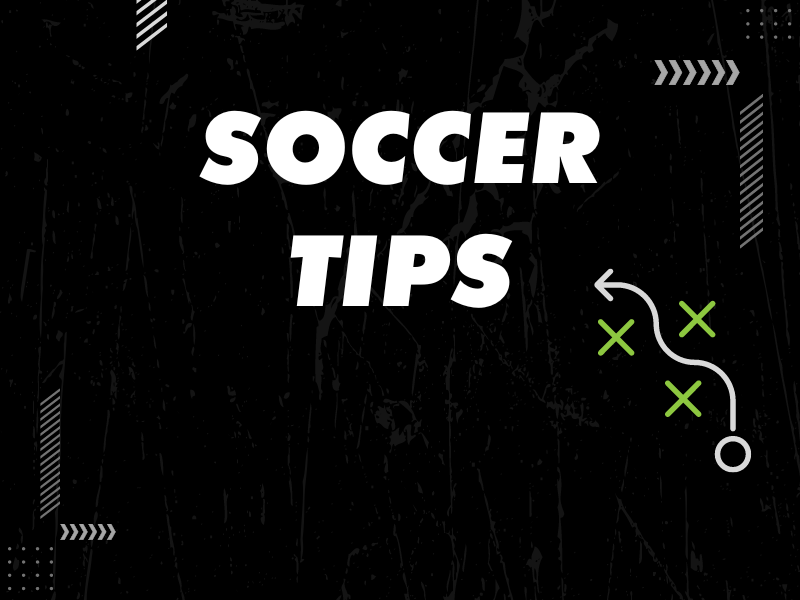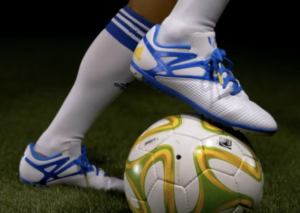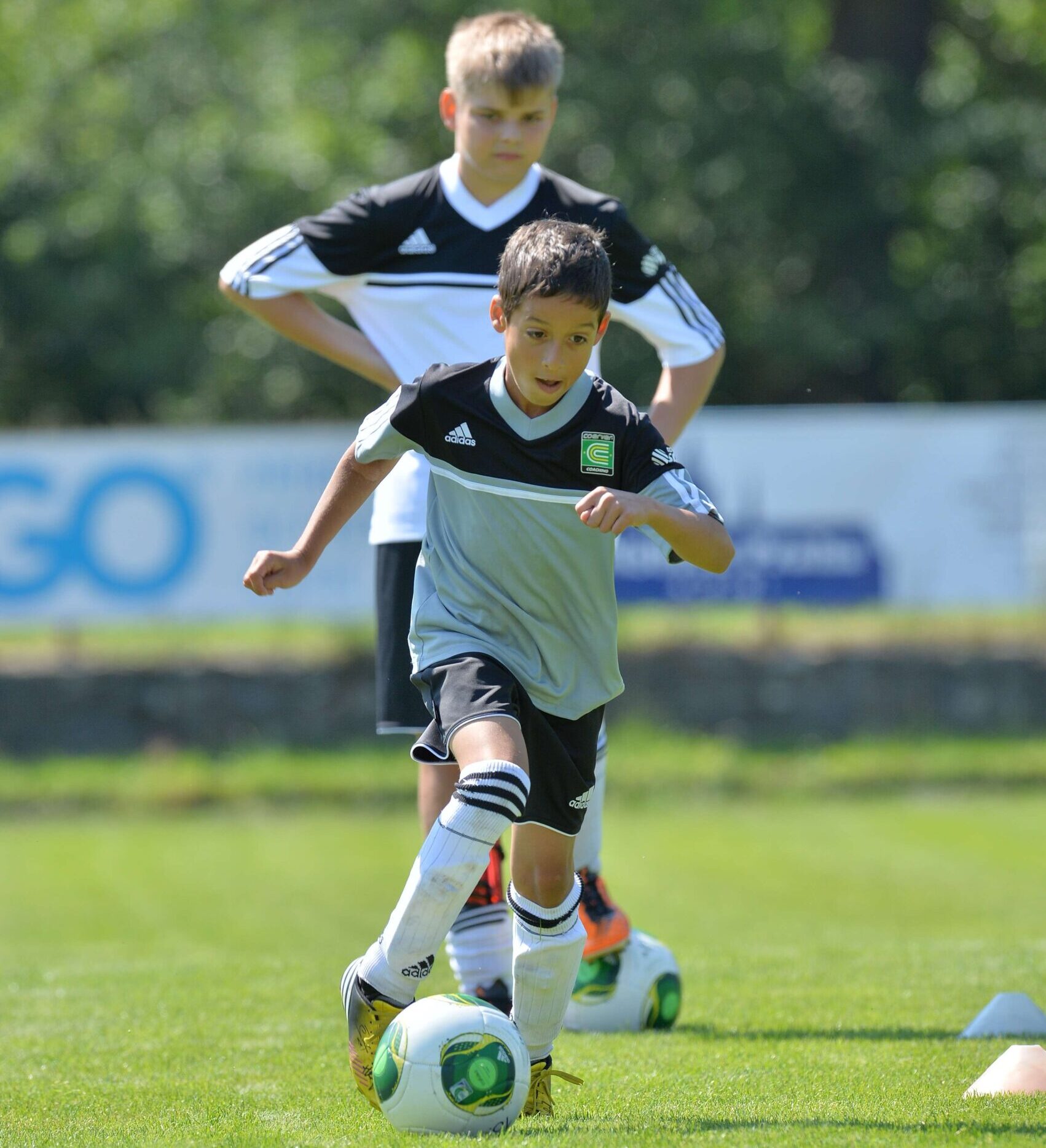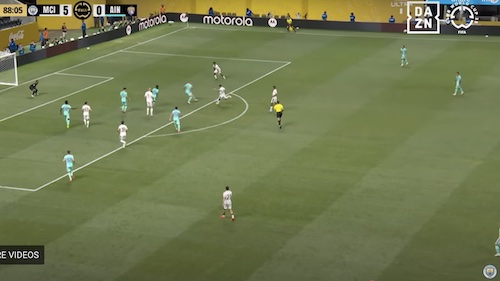| What’s that one fitness component that you’re forgetting about as a soccer player? It’s something you do every night…and while doing it you probably end up dreaming about a goal you hope to score in your next soccer game. Yes, sleep is something that’s taken for granted and not given enough attention for just how important it is for soccer players, especially young and growing youth soccer players. Make sure you get plenty of sleep every night!
New: A Soccer Movie Runs Through Your Head Nearly Uncontrollably So, how much sleep do you actually need as a footballer and how can you make it so you sleep for more time and in a much deeper way? We take a look in this video! You could train and practice with the soccer ball for hours and hours but if you don’t get enough of this one thing then you won’t be able to perform like you’d dreamed. Yes, it’s sleep that a lot of soccer players aren’t getting enough of. Everyone knows how important sleep is, really. Don’t you feel amazing when you are well rested and full of energy of a good night’s sleep? And I’m sure you’ve heard about how fans yell and sing outside the hotels of visiting soccer teams during big tournaments so the players can’t sleep? Yes, this happens quite a bit, with soccer fans setting off fire alarms off and lighting fireworks outside the hotels of opposing teams. They might even try to call the players rooms and wake them up. This is all because sleep is so important and something we take for granted. Results of a new poll from the National Sleep Foundation confirm what most people already know: we’re really tired and you need more sleep. How long do soccer players need to sleep? Although experts recommend at least eight solid hours of sleep a night for optimum health and well-being, the majority of us get less than seven, and a third of the population sleeps six and a half hours a night or less. Nearly half of those polled say they will forfeit sleep in order to accomplish more. If you’re among the sleepy, your missed sleep costs you plenty. The quality and quantity of your work is reduced, concentration is impaired as well as your ability to handle stress. With all these tired folks driving around, our roads are less safe than they could be, which has serious implications for runners sharing those roads. And, of course, your own running performance is reduced. It is also likely that your need for rest and recovery is increased, and your risk for injury may be higher. Numerous studies have examined the effects of sleep deprivation on athletic performance and the results are discouraging. Chronically deprive yourself of the sleep you need and your training and racing will suffer. Studies have shown sleep deprivation to decrease weight lifting performance, decrease time to exhaustion in aerobic exercise, increase ratings of perceived exertion, increase insulin resistance and decrease glucose tolerance, alter the supply of energy to the muscles, increase the stress hormone cortisol, and reduce running economy. In a review of the sleep and performance literature, researchers have concluded that sleep deprivation strongly impairs human functioning overall. In another study, depriving your body of sleep causes hormonal changes that mimic the effects of aging. If you routinely make tradeoffs of sleep for work or even sleep for training, consider making some lifestyle adjustments. In the poll mentioned above, about 85% say they would sleep more if they knew they could be healthier, avoid injuries, or improve their memory: more sleep can do those things. And for athletes, peak performance includes getting regular and adequate amounts of sleep. For more information about getting healthy sleep visit www.sleepfoundation.org. Here are some recommendations from the National Sleep Foundation to improve the quality and amount of sleep that you get: Limit caffeine. Although individual responses vary, for some people caffeine can disturb sleep for as much as 12 hours later. Try avoiding caffeine in any form after lunch and see how it affects your sleep. Perhaps only have coffee on your days off or reduce the amount you’re drinking. Watch your diet and beverage consumption in the evening. Foods that cause indigestion can disturb sleep and too many fluids can interrupt sleep with nighttime trips to the bathroom. So while it’s important to stay hydrated and drink enough water, go to the bathroom before you go to sleep so you’re not getting up in the middle of the night. Exercise: Yes. Overtraining: No. While regular exercise promotes healthy sleep, overtraining impairs sleep significantly. In fact, if your sleep habits suddenly take a turn for the worse, consider overtraining as a possibility. Always include adequate rest and recovery in your training plans and your running life will help to promote healthy sleep. You can monitor your morning pulse rate to check for overtraining. A higher than usual rate may indicate overtraining. Keep a regular schedule. Shift workers have a hard time because they can’t keep regular hours, but the rest of us should try to go to bed and wake up about the same time every day. Physiologically, circadian rhythms – the daily fluctuations of physiological phenomena – play a huge role in your functioning and performance. The more regular your habits, the better. Growing. Sleep is crucial for young soccer players who are still growing. The body repairs itself while you sleep. Lack of sleep can affect growth and your immune system — if your immune system is run down you’re more likely to get sick. Limit alcohol. Ok, drinking alcohol isn’t good for young soccer players period. But for soccer coaches let’s say, who need their sleep, too, a nightcap might allow you to fall asleep more quickly, but it can impair the quality of sleep. Alcohol increases the number of times you wake up during the night. In Europe, where soccer players drink wine with a meal have to be careful it doesn’t affect their sleep. And again, if you’re young, sleep is incredibly important since you’re still growing and your body needs its sleep to re-charge and develop to its fullest. So, while you think you can get away with staying up late, don’t, try getting more sleep and see how your performance on the soccer field improves. Learn more at the links below: |
Sleep: The Missing Fitness Component for Soccer Players















